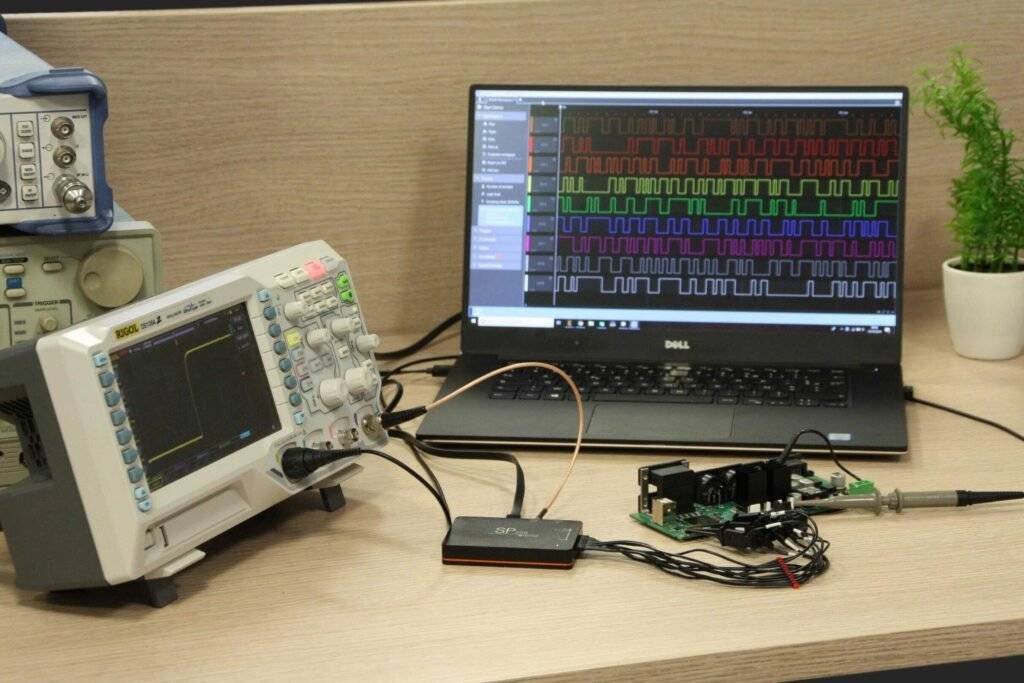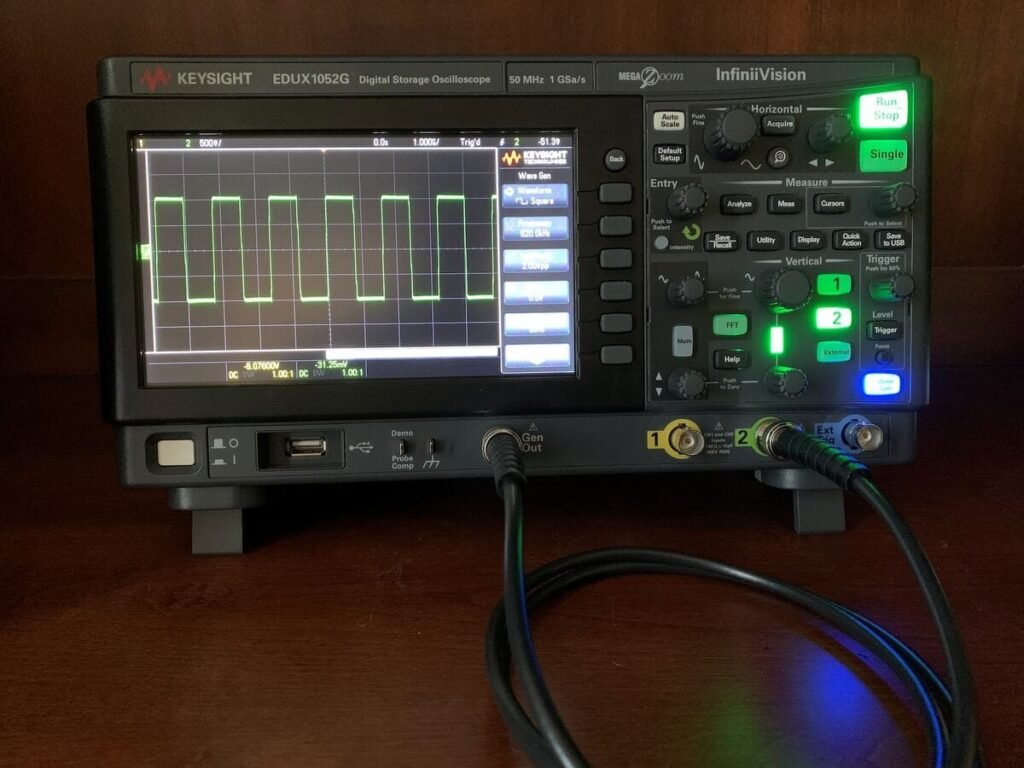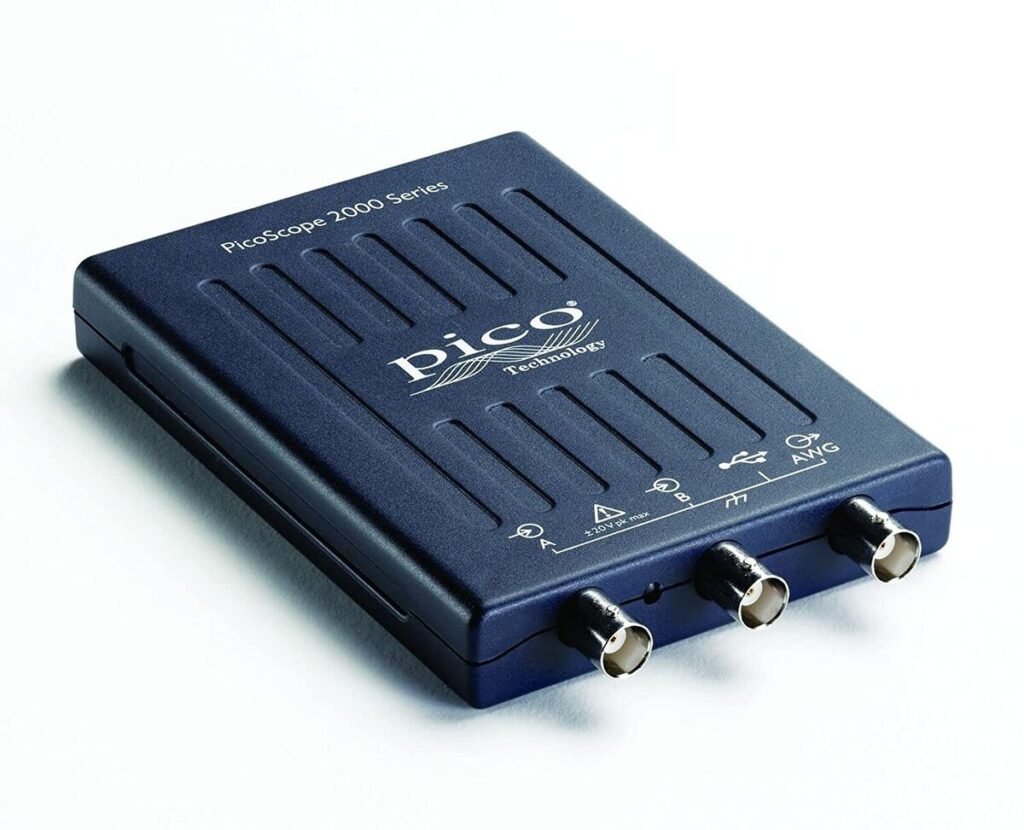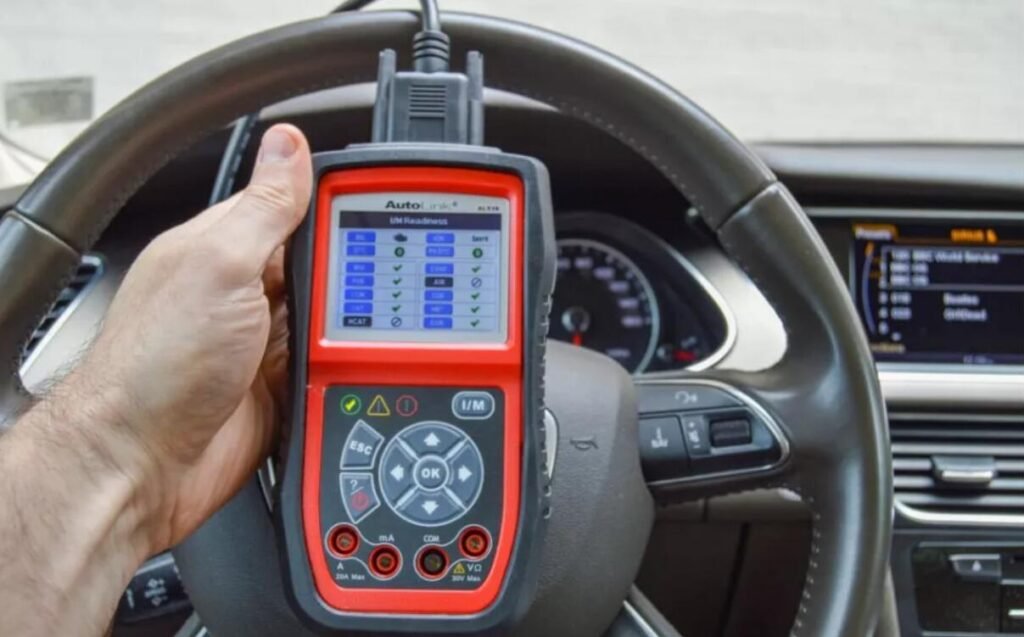Top 4 Best Logic Analyzers under $192 (in 2024)
If you are looking for a logic analyzer and deciding which to purchase, then you have come to the right place. We will make it easy for you.
A logic analyzer is a tool used in digital electronics to capture and display multiple digital signals simultaneously. It helps engineers analyze and debug digital circuits by providing detailed timing information, allowing for troubleshooting and optimization of complex digital systems.








Don’t forget to also peruse our oscilloscopes, spectrum analyzers, and other electronics lab tools.
Best Logic Analyzers
Logic 8 (Red) – Saleae 8-Channel Logic Analyzer

Pros
- Compact and portable design.
- Easy-to-use software interface.
- Offers simultaneous digital and analog capture.
- Compatible with various operating systems.
Cons
- May have limited channel count for complex projects.
- Compatibility issues may arise with certain devices.
- External power source may be required for extended use.
- Software features may require additional subscription fees.
This is an easy-to-use ultra-portable logic analyzer that saves you time and frustration, the Logic 8 (Red) from Saleae. The digital sample rate of up to 100 MS/s and analog sample rate of up to 10 MS/s allow for accurate and detailed analysis, while the Logic 2 software is user-friendly and makes analyzing data a breeze. Additionally, the analyzer is compatible with Windows, Mac, or Linux, providing versatility for users.
One potential downside to the product is that it does not include three-way cables, which can be frustrating for some users. Additionally, the analyzer can only listen in and cannot issue commands, which may be a drawback for some.
All in all, the Logic 8 (Red) from Saleae is a great choice and although it does not win any awards from us, you are assured you will not be disappointed.
DSLogic Plus USB-Based Logic Analyzer


Pros
- Full 16 channels for comprehensive analysis.
- Affordable price compared to similar models.
- Advanced triggering options for precise capture.
- Compact and portable design.
Cons
- May have limited support and documentation.
- Build quality may vary.
- Software interface may need improvement.
- May require additional accessories for specific applications.
If you’re looking for a reliable and affordable logic analyzer, the DSLogic Plus is worth considering.
I have used the DSLogic Plus on a microprocessor, and for the price, it has been a great tool for debugging. The dual-mode support is especially useful, as it allows me to switch between long sample duration and high sample rate depending on what I’m working on. The USB 2.0 type-c interface ensures that data transfer is fast and reliable, which is essential when dealing with large amounts of data.
One thing to keep in mind is that the device is not USB-C, which may be a drawback for some users. Additionally, the software can be a bit finicky at times, although I haven’t experienced any major issues myself. Some users have reported problems with the USB connection, so it’s important to make sure you’re following the manufacturer’s recommendations when it comes to connecting the device.
The DSLogic Plus is a great buy and win our GREAT BUY award here at Oscilloscope Pros.
Innomaker LA2016 USB Logic Analyzer


Pros
- Works as advertised with integrated software features.
- Useful UART protocol converter.
- Easy setup with high-quality cable and probe wires.
- Great value for the money.
Cons
- Occasional software crashes may occur.
- Limited triggering capability may not suit all complex use cases.
- Documentation may be confusing for some users.
- Representation options for decoded signals may be limited.
If you’re looking for a high-performance logic analyzer, the innomaker LA2016 is a great option to consider.
I recently used the innomaker LA2016 to analyze digital signals in a project I was working on, and I was impressed with its performance. The sampling rate is fast, and the software is intuitive and easy to use. I was able to quickly display, analyze, and export the data I needed.
One thing to keep in mind is that the LA2016 is a bit pricey compared to some other logic analyzers on the market.
Another minor frustration I had was with the fixed effect of selecting a line in the protocol analysis on zoom and location in the waveform. It would be nice to have more flexibility in this regard.
The Innomaker LA2016 USB Logic Analyzer is much loved by many technicians and wins our EDITORS CHOICE award here at Oscilloscope Pros.
Logic Pro 16 (Red) – Saleae 16-Channel Logic Analyzer


Pros
- Offers 16 channels for comprehensive signal analysis.
- High-quality construction ensures durability.
- User-friendly software interface for easy operation.
- Provides accurate and reliable data capture.
Cons
- May require additional adapters for specific applications.
- Software updates may be needed for optimal performance.
- Sampling rate limitations may affect certain analyses.
- Compatibility with some devices may vary.
For 16 channels, the Logic Pro 16 from Saleae is an excellent option. The 16 digital/analog inputs made it easy to decode various protocols, and the sample rate was high enough to provide clear captures. Additionally, the ultra-portable design made it easy to use in different locations.
However, the price point may be a bit steep for some users, and the software could use more features to make it even more user-friendly. Additionally, while the analog capture ability is a nice feature, it is limited and may not be as useful for some users.
The Logic Pro 16 from Saleae Logic Analyzer is a great choice, especially if you need to decode a variety of protocols and need a portable option. It wins our TOP PICK award.
Buying Guide
Logic analyzers come in different shapes and sizes, with varying capabilities and features. Some of the critical factors to consider when purchasing a logic analyzer include the number of channels, sample rate, memory depth, trigger types, and software capabilities. The number of channels determines how many signals you can capture simultaneously, while the sample rate and memory depth dictate the resolution and duration of the captured signals.
The type of trigger is also crucial in capturing specific events or sequences of events in your digital circuit. Some logic analyzers offer advanced triggering capabilities, such as state-based triggering, protocol decoding, and serial bus triggering, which can help you isolate and debug complex digital signals.
When looking for a Logic Analyzer, it’s important to consider a few key factors to ensure you’re getting the best product for your needs. Check for these features:
Channels
The number of channels your Logic Analyzer has will determine how many signals you can measure at once. If you’re working on a project that requires a lot of signals, it’s important to choose a Logic Analyzer with a high number of channels.
Sampling Rate
The sampling rate is the speed at which the Logic Analyzer can capture data. A higher sampling rate means you’ll be able to capture more data in a shorter amount of time. This is important if you’re working on a project that requires high-speed signals.
Memory Depth
The memory depth is the amount of data that the Logic Analyzer can store. A deeper memory depth means you can capture more data before the Logic Analyzer needs to stop and transfer the data to your computer. This is important if you’re working on a project that requires a lot of data.
Triggering
Triggering is the ability to capture specific events or patterns in your signals. Look for a Logic Analyzer with advanced triggering features to help you capture the exact data you need.
Software
The software that comes with your Logic Analyzer is just as important as the hardware itself. Look for a Logic Analyzer that comes with software that is easy to use and has all the features you need to analyze your data.
Don’t forget to also check our oscilloscopes, spectrum analyzers, and other electronics lab tools.
Reviewer Final Comments
These top 4 logic analyzers under $192 offer impressive functionality and value for budget-conscious users. Each analyzer provides reliable signal analysis and debugging capabilities, making them suitable for a variety of electronic projects and applications. The good news is that these units have many reviews, are widely available, and highly ranked.
These logic analyzers offer a cost-effective solution for hobbyists, students, and professionals seeking quality performance without breaking the bank.





